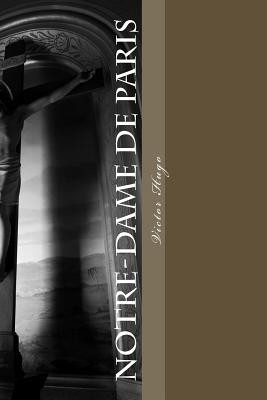
- We will send in 10–14 business days.
- Publisher: CreateSpace Independent Publishing Platform
- ISBN-10: 1499620659
- ISBN-13: 9781499620658
- Format: 15.2 x 22.9 x 1.9 cm, softcover
- Language: English
- SAVE -10% with code: EXTRA
Notre-Dame de Paris (e-book) (used book) | bookbook.eu
Reviews
Description
The Hunchback of Notre Dame uses the history of the Middle Ages and the structure of the Notre Dame cathedral to express its major themes. Notre Dame is the geographical and moral center of Hugo's fictional Paris. The cathedral inspired Hugo to write the novel and encouraged his life long passion for Gothic art and architecture. Hugo was also a scholar of medieval Christianity and used the history of its churches, martyrs, and saints as a backdrop for the novel's action. The French title of the novel is Notre Dame de Paris, emphasizing Notre Dame's role as a symbol of the city. Not only does most of the novel's action unfold inside or around the cathedral, but from the top of its towers, Claude Frollo and Quasimodo can spy on virtually anyone in the entire city. Architecturally, it is an "amalgamation" that mirrors Quasimodo's own deformities.
EXTRA 10 % discount with code: EXTRA
The promotion ends in 20d.21:20:50
The discount code is valid when purchasing from 10 €. Discounts do not stack.
- Publisher: CreateSpace Independent Publishing Platform
- ISBN-10: 1499620659
- ISBN-13: 9781499620658
- Format: 15.2 x 22.9 x 1.9 cm, softcover
- Language: English English
The Hunchback of Notre Dame uses the history of the Middle Ages and the structure of the Notre Dame cathedral to express its major themes. Notre Dame is the geographical and moral center of Hugo's fictional Paris. The cathedral inspired Hugo to write the novel and encouraged his life long passion for Gothic art and architecture. Hugo was also a scholar of medieval Christianity and used the history of its churches, martyrs, and saints as a backdrop for the novel's action. The French title of the novel is Notre Dame de Paris, emphasizing Notre Dame's role as a symbol of the city. Not only does most of the novel's action unfold inside or around the cathedral, but from the top of its towers, Claude Frollo and Quasimodo can spy on virtually anyone in the entire city. Architecturally, it is an "amalgamation" that mirrors Quasimodo's own deformities.


Reviews